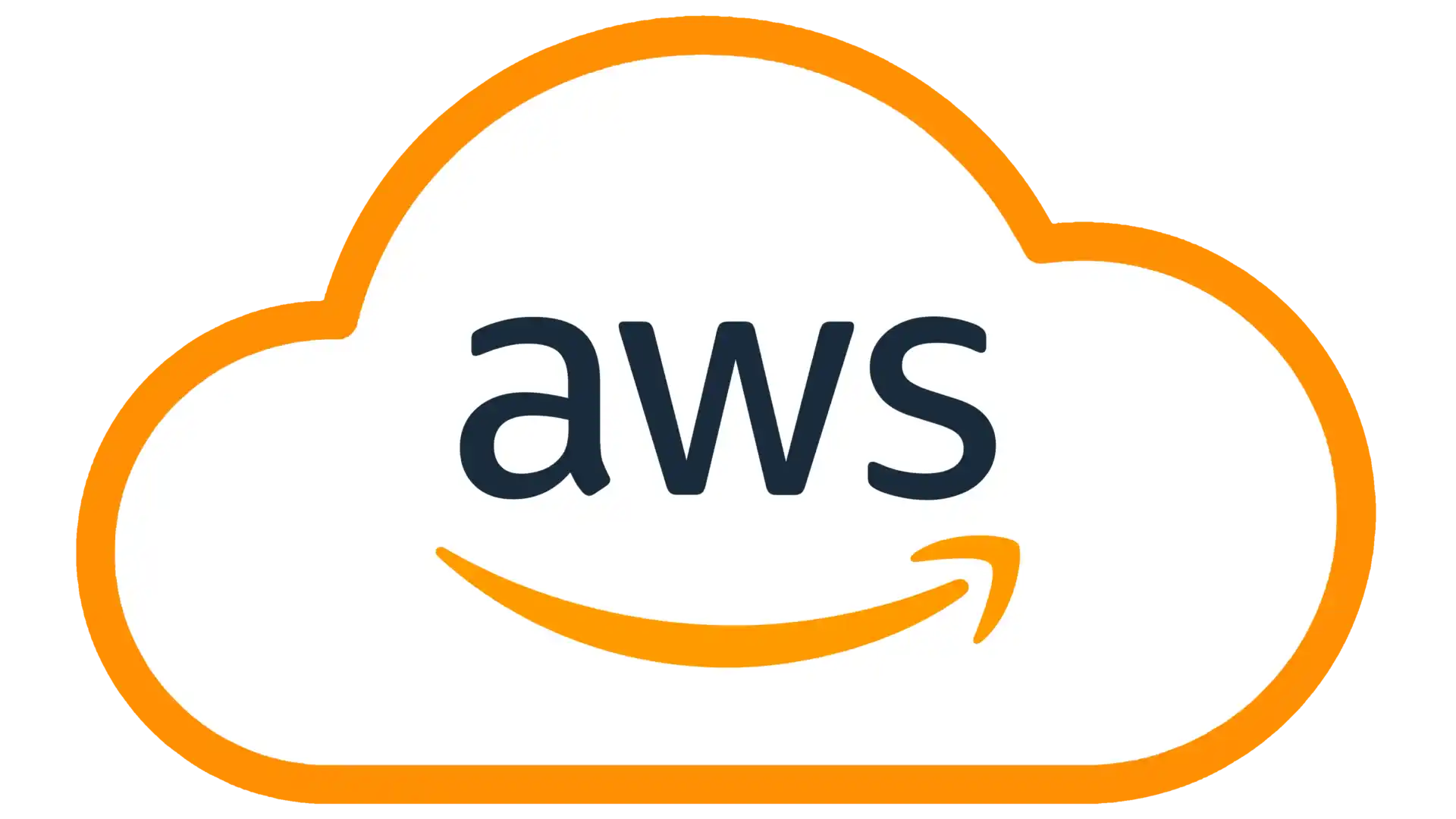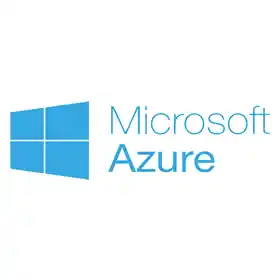Table of Contents
In today’s digital landscape, cloud computing reigns supreme. Businesses are rapidly migrating their operations to the cloud, seeking the benefits of scalability, flexibility, and cost-effectiveness. But with numerous cloud service providers (CSPs) vying for your attention, choosing the right one can be overwhelming.
This blog post dives deep into the big three: AWS vs Google Cloud vs Microsoft Azure, to provide a clear-cut comparison and help you navigate the cloudy waters.
A Brief Overview
Before we delve into the specifics of AWS vs Google Cloud vs Microsoft Azure, let’s establish a common ground. Cloud computing refers to the on-demand delivery of IT resources like servers, storage, databases, and applications over the internet. Businesses leverage cloud platforms instead of managing physical infrastructure for their computing needs, reducing upfront costs and increasing operational efficiency.
The rise of cloud adoption is undeniable. Businesses across industries are embracing the cloud for its numerous advantages. Cloud services enable rapid scaling of resources to meet fluctuating demands, eliminate the need for costly hardware maintenance, and facilitate collaboration across geographical boundaries.
Market Share and Adoption
Now, let’s get down to business! Regarding AWS vs Google Cloud vs Microsoft Azure, market share statistics paint a clear picture. Currently, AWS holds the top spot with a staggering 33% market share, establishing itself as the dominant player in the cloud game. Microsoft Azure trails closely behind with a respectable 24% share, while Google Cloud sits at 11%.
However, market share isn’t the only indicator. Cloud adoption trends reveal a dynamic landscape. While AWS maintains its leadership position in the AWS vs Google Cloud vs Microsoft Azure market, Google Cloud is experiencing the fastest growth rate, particularly among startups and businesses with a strong focus on big data analytics and machine learning.
Core Services Offered: AWS vs Google Cloud vs Microsoft Azure
Each of the big three cloud providers, AWS vs Google Cloud vs Microsoft Azure, boasts a wide array of services catering to diverse needs. Let’s take a quick bite out of each one:
AWS (Amazon Web Services):

AWS offers an extensive suite of services, including compute (EC2 – Elastic Compute Cloud), storage (S3 – Simple Storage Service), databases (RDS – Relational Database Service), networking (VPC – Virtual Private Cloud), and a comprehensive portfolio of security, management, and analytics tools.
Google Cloud (Google Cloud Platform):

Google Cloud Platform excels in data analytics (BigQuery), artificial intelligence (Cloud AI Platform), and containerization (Kubernetes Engine). Additionally, they provide robust computing (Compute Engine), storage (Cloud Storage), and networking (Cloud VPN) services.
Microsoft Azure:

Microsoft Azure shines in hybrid cloud solutions, seamlessly integrating with existing on-premises infrastructure. Azure offers a plethora of services like computing (Virtual Machines), storage (Azure Blob Storage), databases (Azure SQL Database), networking (Virtual Networks), and development tools that integrate with the Microsoft ecosystem.
Pricing Models
Understanding cloud pricing structures can be tricky. Here’s a simplified breakdown of AWS vs Google Cloud vs Microsoft Azure pricing:
- AWS: AWS uses a pay-as-you-go model, where you only pay for the resources you utilize. However, the pricing can be complex with various tiers, instance types, and reserved instances to consider.
- Google Cloud: Google Cloud offers a similar pay-as-you-go model with sustained use discounts and committed use discounts for predictable workloads. Additionally, they have a unique feature called “automatic discounts” that can further reduce your cloud bill.
- Microsoft Azure: Microsoft Azure utilizes a pay-as-you-go model alongside reserved instances and hybrid benefits for integrating on-premises infrastructure with Azure services.
- Cost-Effectiveness Comparison: While a definitive answer depends on your needs, Google Cloud is the most cost-effective option, especially for predictable workloads. However, AWS offers flexibility with its diverse pricing plans.
Performance and Scalability
Performance and scalability are fundamental factors to consider when choosing between AWS vs Google Cloud vs Microsoft Azure. Here’s a look at each:
Speed and Reliability:
- AWS: AWS boasts a global network infrastructure and offers a wide range of features to optimize performance and reliability.
- Google Cloud: Google Cloud leverages its expertise in network optimization, potentially offering lower latency connections.
- Microsoft Azure: Azure’s global reach ensures high availability and reliability for your applications.
Scalability Features:
All three providers, AWS vs Google Cloud vs Microsoft Azure, offer robust scaling features. You can easily scale compute resources up or down to meet fluctuating demand, ensuring your applications can handle peaks and troughs in usage.
Security Features
Security is paramount in the cloud. AWS vs Google Cloud vs Microsoft Azure all prioritize security measures to safeguard your data and infrastructure:
Security Measures Implemented by AWS:
AWS offers a comprehensive suite of security features, including:
- Identity and Access Management (IAM): Granular control over user permissions and access to resources.
- Encryption: Data encryption at rest and in transit to protect sensitive information.
- Security Groups: Network-level security to control inbound and outbound traffic.
- AWS Shield: DDoS protection for your applications.
- AWS WAF: Web Application Firewall to protect against common web attacks.
Security Measures Implemented by Google Cloud:
Google Cloud emphasizes security with features like:
- Cloud Identity: Centralized user management and authentication.
- Cloud Armor: DDoS protection and web application firewall.
- Cloud Security Scanner: Vulnerability scanning for your cloud resources.
- Cloud KMS: Key Management Service for encrypting data.
- Cloud DLP: Data Loss Prevention to detect and prevent sensitive data leaks.
Security Measures Implemented by Microsoft Azure:
Azure provides robust security features, including:
- Azure Active Directory: Identity and access management.
- Azure Security Center: Unified security management and threat detection.
- Azure Firewall: Network-level security.
- Azure Key Vault: Secure storage for cryptographic keys.
- Azure Advanced Threat Protection: Threat detection and response for on-premises and cloud environments.
Compliance and Certifications:
All three providers, AWS vs Google Cloud vs Microsoft Azure, adhere to industry-standard compliance frameworks like HIPAA, PCI DSS, and ISO 27001. They also offer various certifications and attestations to demonstrate their commitment to security.
Integration and Ecosystem
Integration and ecosystem compatibility are crucial factors to consider when choosing between AWS vs Google Cloud vs Microsoft Azure. Your choice of cloud provider should align with your existing software tools and infrastructure.
Compatibility with Software Tools in AWS:
AWS boasts a vast ecosystem of compatible software tools and services. It integrates seamlessly with popular programming languages, databases, and development frameworks.
Compatibility with Software Tools in Google Cloud:
Google Cloud offers strong integration with Google’s suite of products, such as G Suite and Google Workspace. It also supports a wide range of third-party tools.
Compatibility with Software Tools in Microsoft Azure:
Azure’s compatibility with Microsoft technologies is a major advantage. It integrates well with Windows Server, SQL Server, and other Microsoft products.
Developer Community and Support:
A vibrant developer community and robust support can significantly impact your cloud experience. AWS vs Google Cloud vs Microsoft Azure all have extensive communities and support resources.
Use Cases and Industry Applications
The best cloud provider for you depends on your specific use cases and industry needs. Let’s explore some popular use cases and industries that leverage these platforms: AWS vs Google Cloud vs Microsoft Azure
Popular Use Cases for AWS:
- E-commerce: AWS provides scalable infrastructure to handle online traffic and transactions.
- Gaming: AWS offers low-latency services for real-time gaming experiences.
- Media Streaming: AWS supports high-performance video and audio streaming.
- IoT: AWS provides services for managing and analyzing IoT data.
Popular Use Cases for Google Cloud:
- Data Analytics: Google Cloud’s BigQuery and other data analytics tools are ideal for data-driven businesses.
- Machine Learning: Google Cloud‘s AI platform enables advanced machine learning models.
- Healthcare: Google Cloud offers HIPAA-compliant solutions for healthcare data.
- Life Sciences: Google Cloud supports genomic analysis and bioinformatics research.
Popular Use Cases for Microsoft Azure:
- Hybrid Cloud: Azure’s hybrid cloud capabilities make it suitable for businesses with existing on-premises infrastructure.
- Enterprise Applications: Azure offers a range of enterprise-grade applications and services.
- Financial Services: Azure provides secure and compliant solutions for financial institutions.
- Government: Azure caters to the specific needs of government agencies with its compliance and security features.
Conclusion
Choosing the right cloud provider from AWS vs Google Cloud vs Microsoft Azure requires a deliberate evaluation of multiple factors. Begin by identifying the essential services your applications necessitate, ensuring they align with the offerings of each provider. Consider the pricing models and cost-effectiveness of each option, taking into account your specific usage patterns and anticipated future growth.
Performance and scalability are equally crucial aspects when choosing between AWS vs Google Cloud vs Microsoft Azure. Assess the capabilities of each provider to handle your anticipated workloads and ensure your applications can scale seamlessly to meet fluctuating demands. Security is paramount in the cloud, so evaluate the robust security measures implemented by each provider, including encryption, access controls, and compliance certifications.
Integration with your existing software tools and infrastructure is another important consideration. Evaluate the compatibility of each provider with your current systems to minimize disruption and facilitate a smooth transition. Finally, consider the alignment of each provider with your industry and specific use cases. Determine which platform best supports your unique requirements and can help you achieve your business objectives.
By carefully weighing these factors, you can make an informed decision and select the cloud provider that empowers you to achieve your business goals efficiently and securely. Remember, the best cloud provider is the one that aligns with your specific needs and enables you to optimize your operations and drive innovation.





